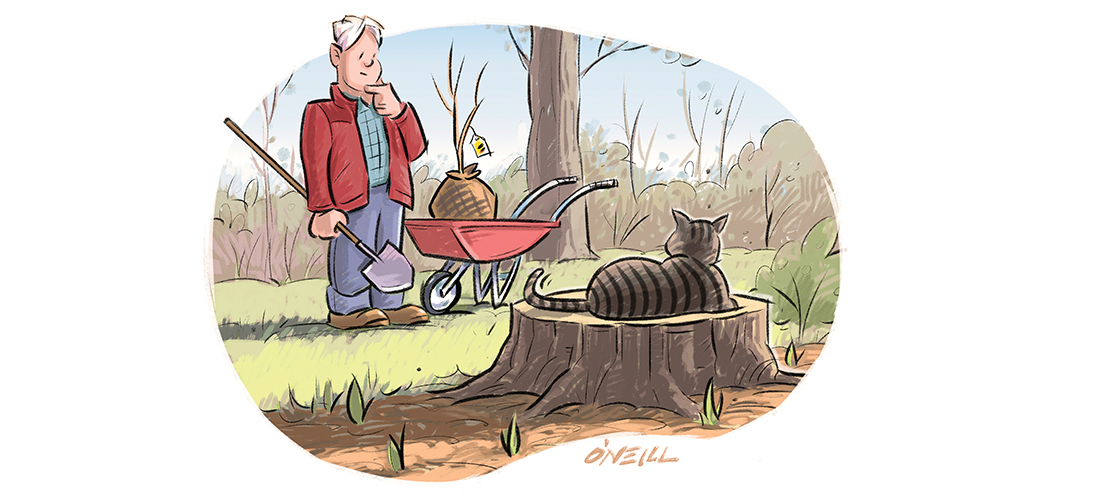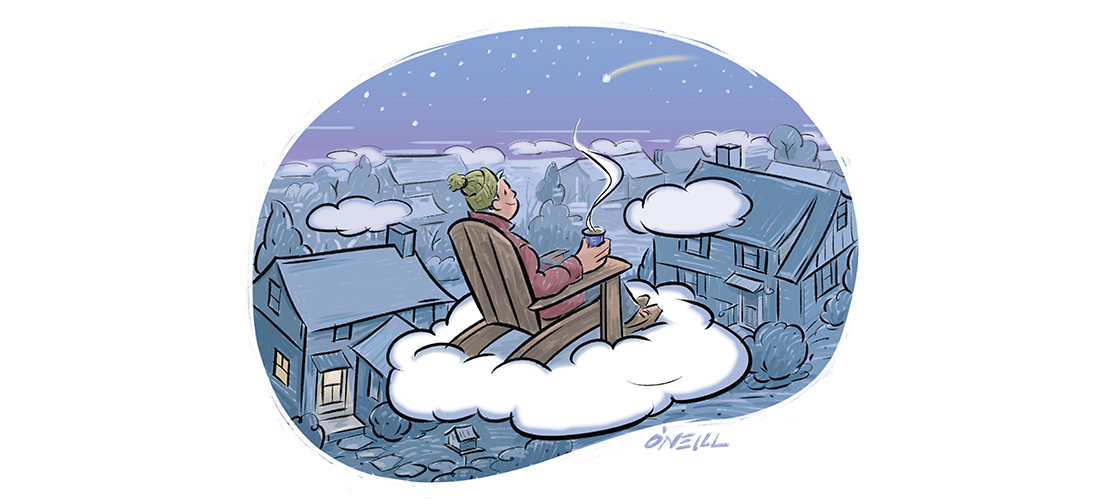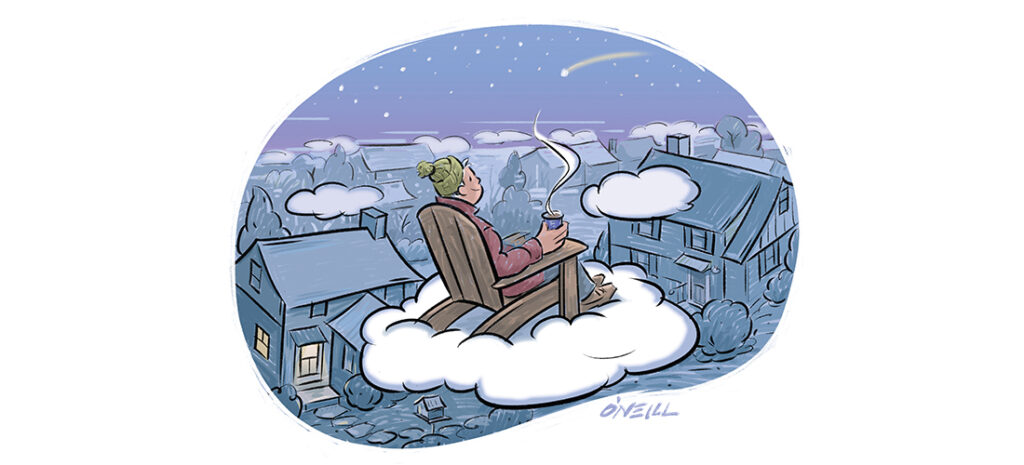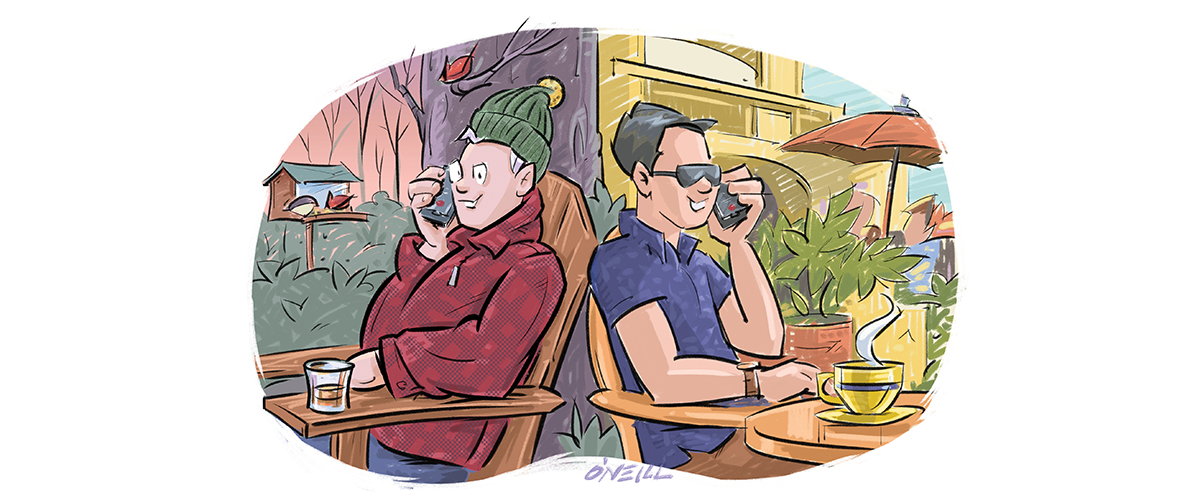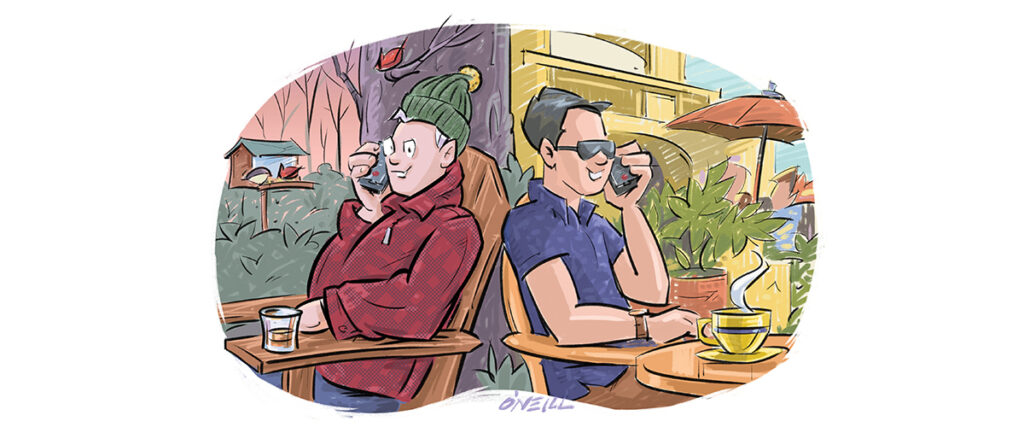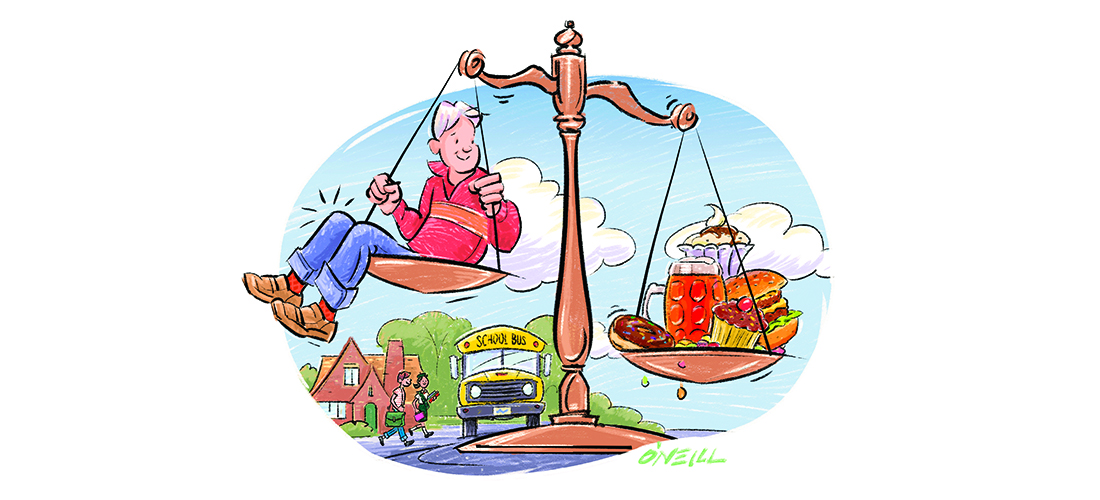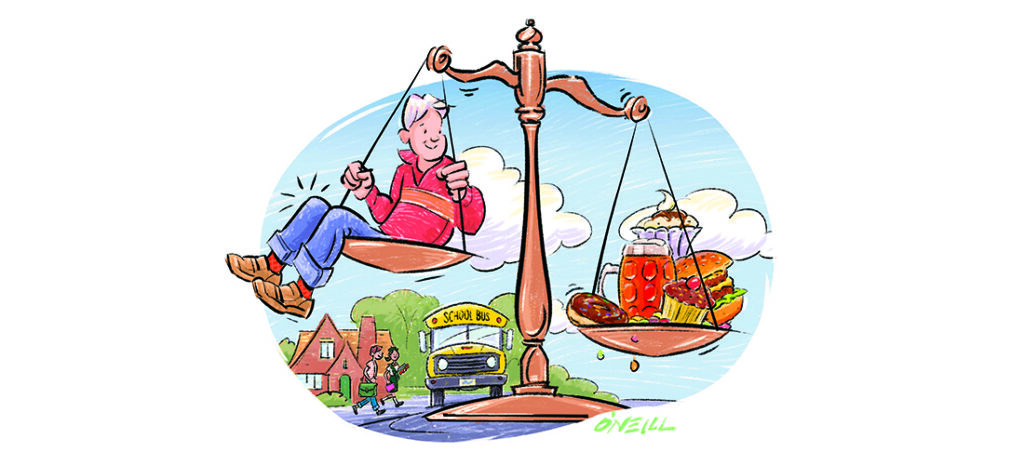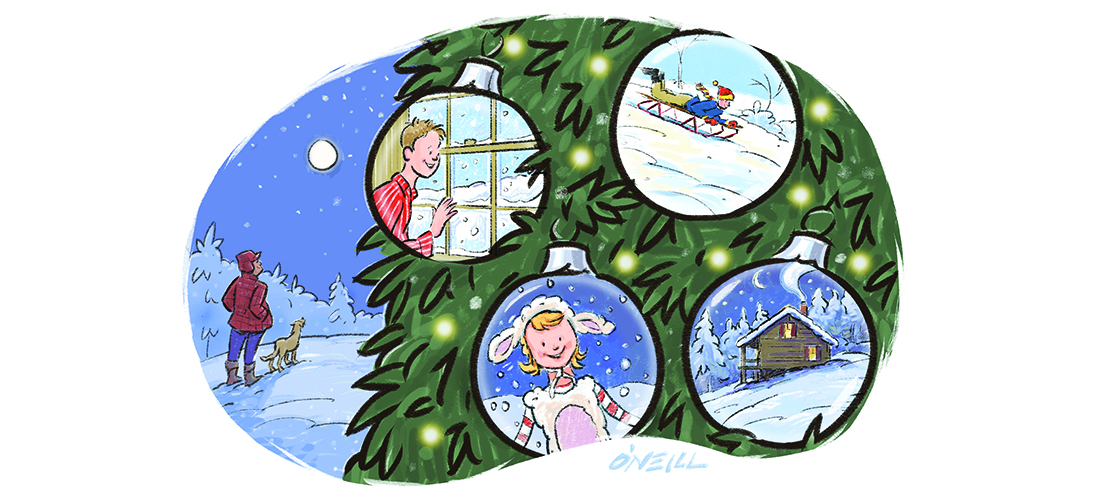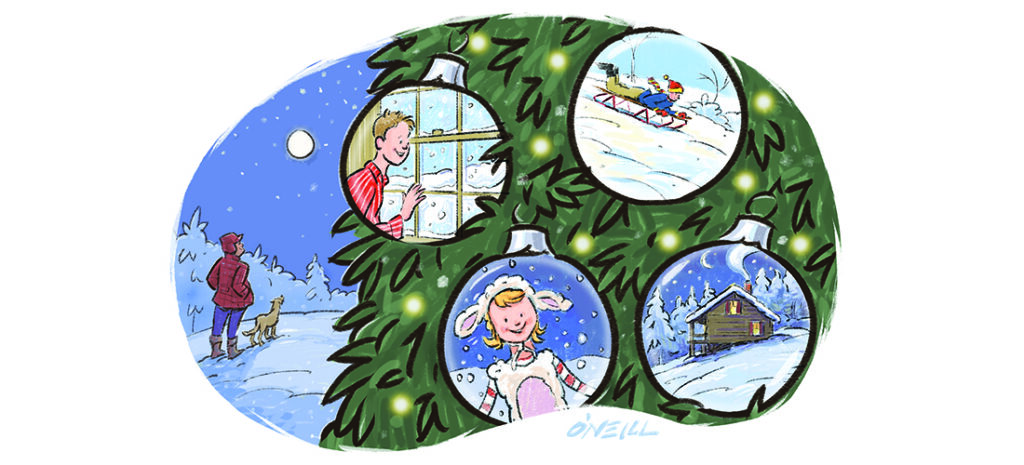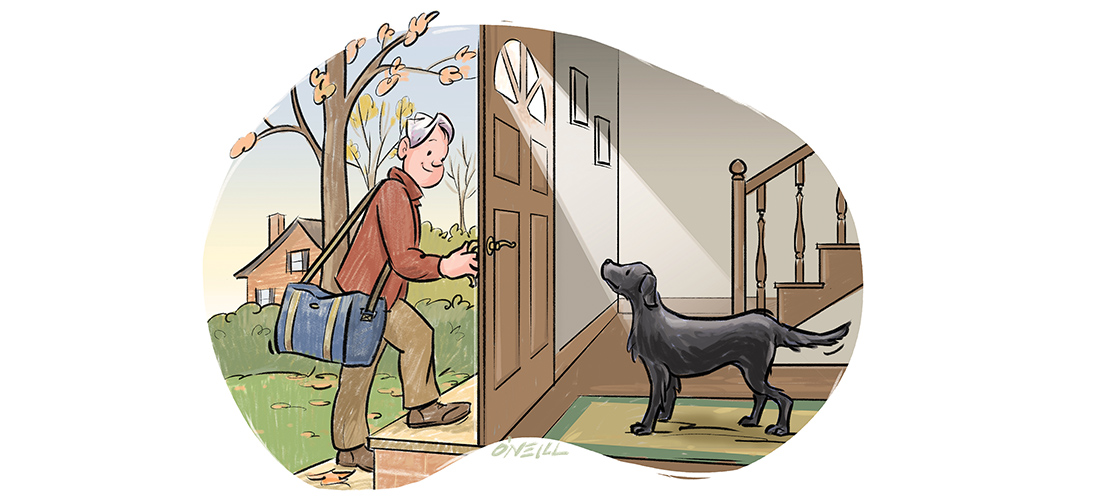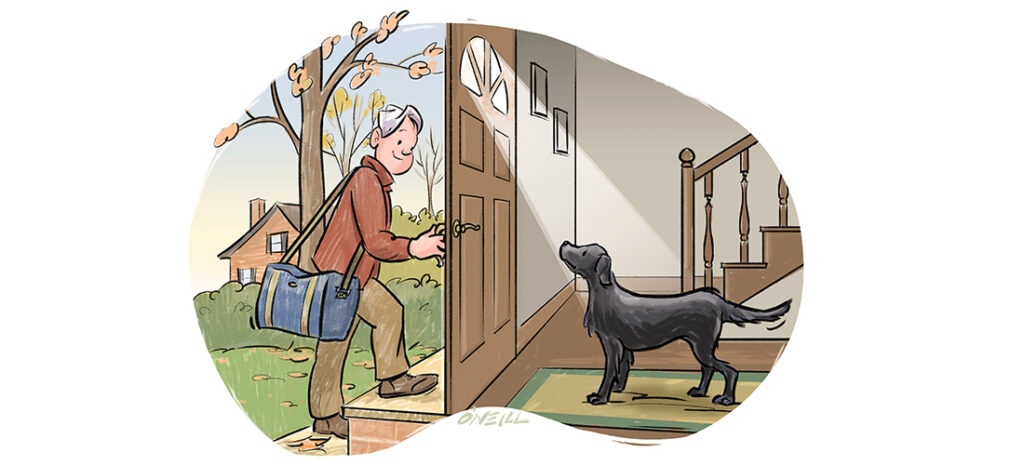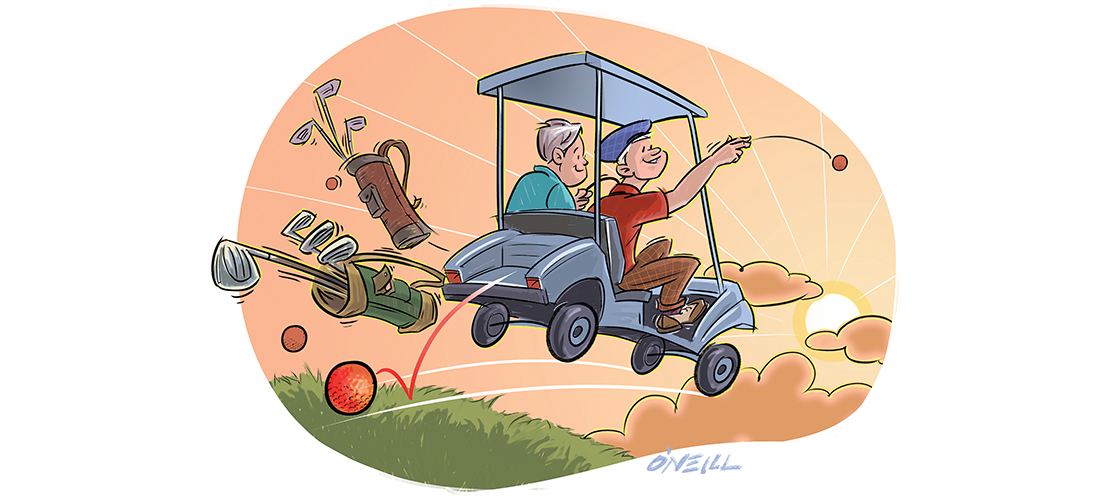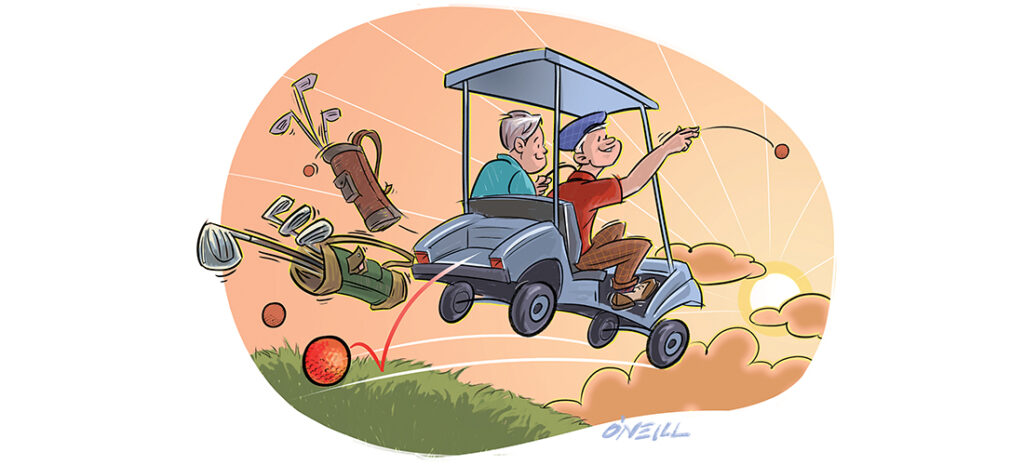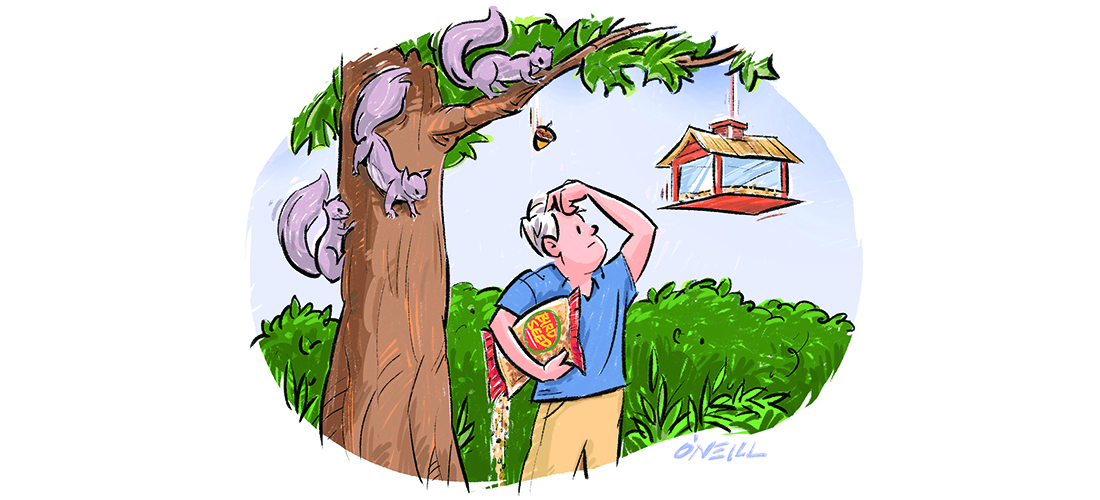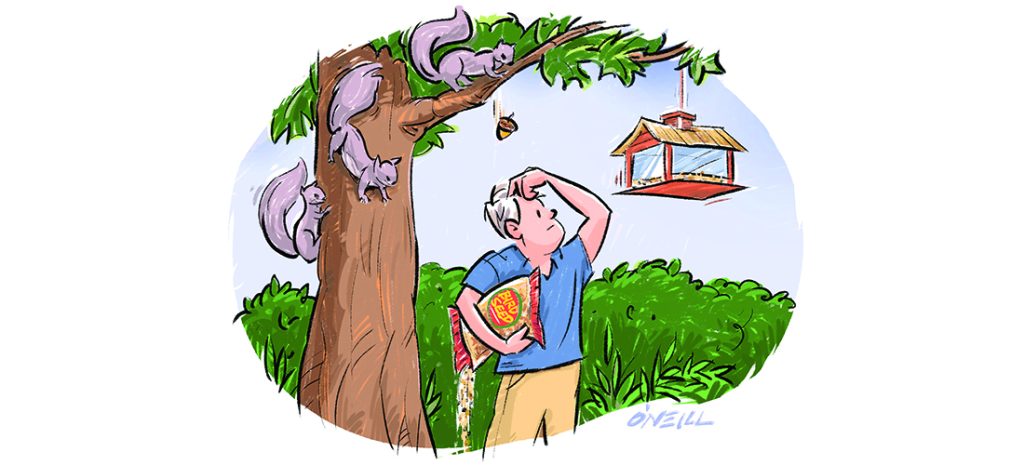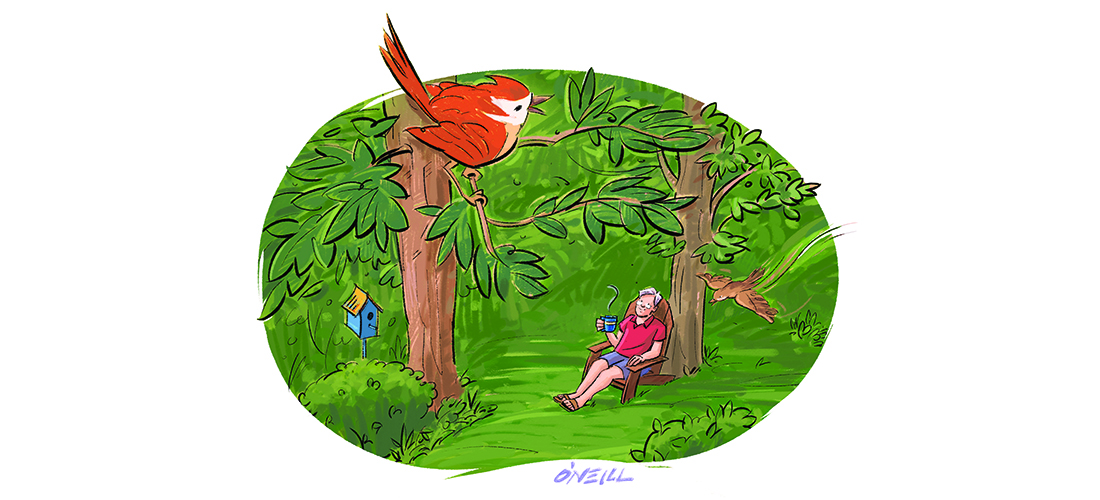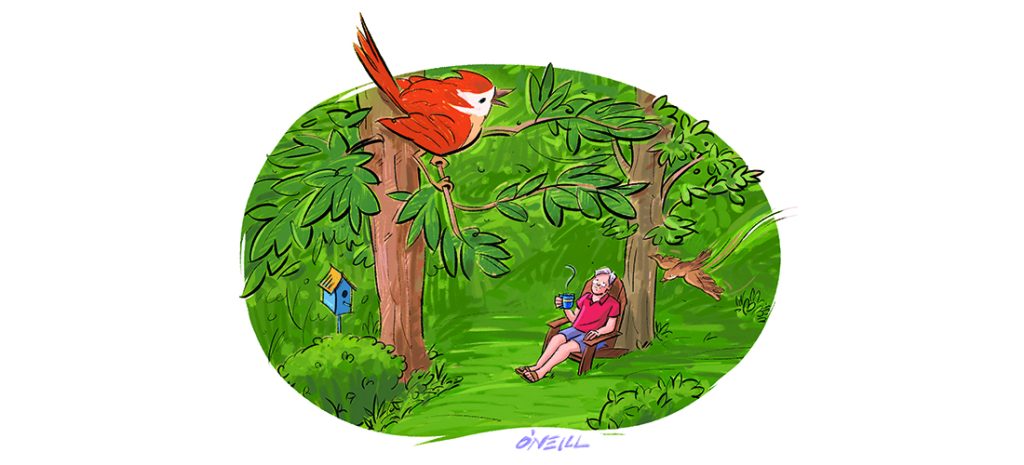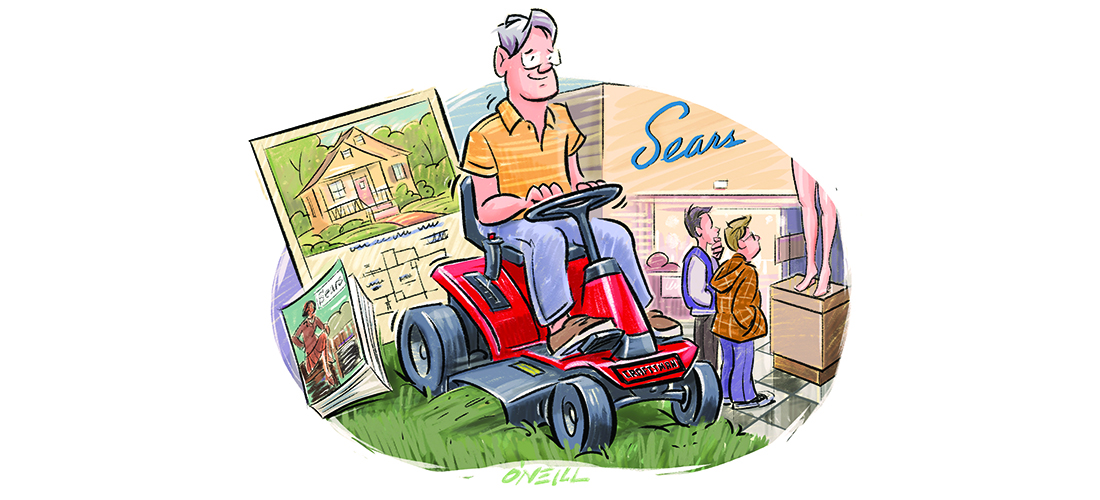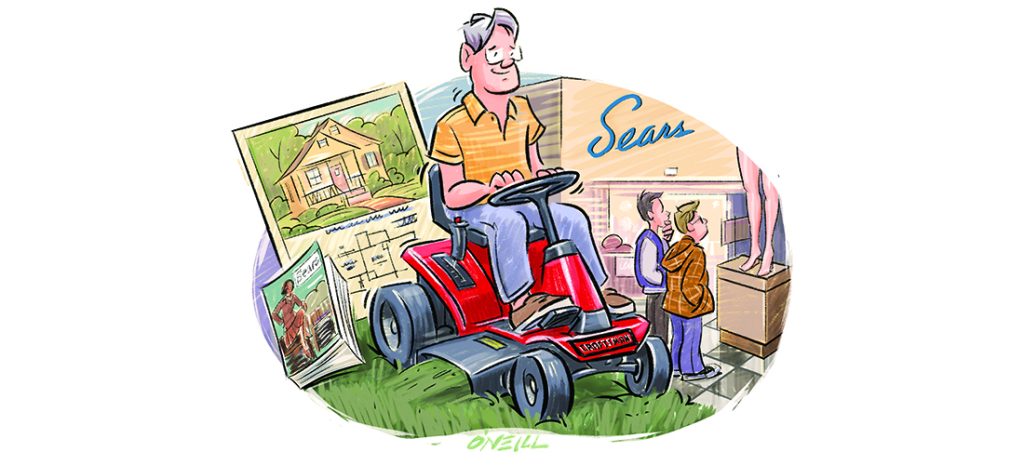Simple Life
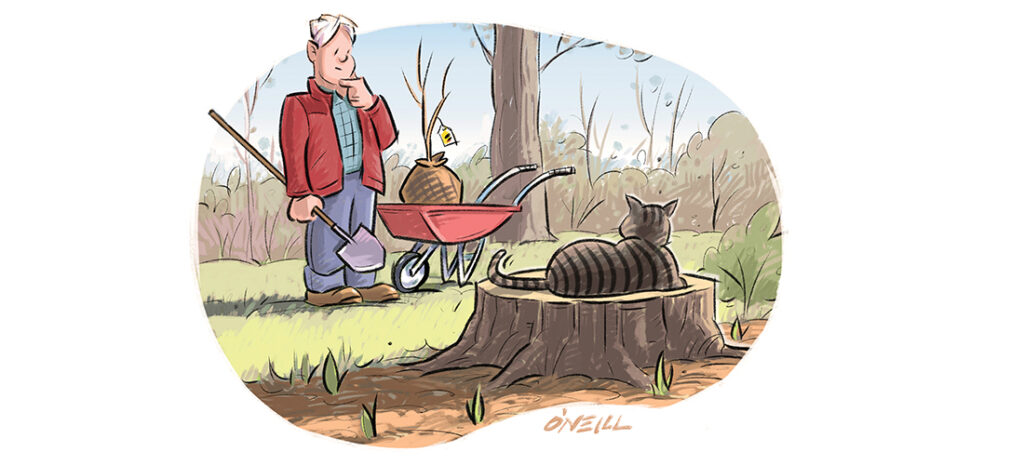
The Ever-Changing Garden
May the work never be done
By Jim Dodson
The spring gardening season officially got underway this year with the necessary removal of a 70-year-old red oak tree that threatened to fall on my garage office. Being a confirmed tree hugger and septuagenarian myself, I felt for the old boy having to come down. But I’d probably have felt worse — perhaps permanently — had the old fella decided to fall on my office with me in it.
Such is the fate of an ever-changing garden, which is a redundant phrase since every garden everywhere is ever changing, if only by a matter of degrees. Any gardener worth his mulch will tell you that the work is never finished. There’s always some new problem to contend with or a fresh inspiration incubated over dark winter days to finally put into motion. We are, as a result, forever incomplete gardeners, revising and learning as we go.
In my case, this year has been all of the above — new problems, fresh inspiration and learning as I go. As the result of the day-long operation to remove “Big Red,” as I called the elderly oak, half a dozen young plants just awakening from their winter nap had to be dug up and set aside so the crane removing the tree could navigate a path across my backyard garden, churning the ground up as it went.
I took this as a sign from on high that it was time to make several big changes in paradise. The first move came on the east side of our house where a trio of formerly well-behaved crape myrtle bushes were suddenly running amok and threatening to blot out the sun. The task of digging them out of the cold January ground proved the wisdom of Robert Frost’s elegant aphorism that the afternoon knows what the morning never suspected — i.e. that some tasks that were easy in the morning of youth prove to be monstrously difficult in the afternoon of age.
Still, I’m nothing if not a committed bugger when it comes to getting my way in a garden. After several hours of intense work with pick and shovel, all under the watchful eye of Boo Radley, the cat who suns himself in that particular part of the estate on winter days, the monstrous shrubs finally came out and I went in for a much-needed lunch break, muddy but triumphant.
“My goodness,” said my wife, stirring soup. “Who won the fight?”
You see, back in the “morning” of my gardening years — that’s five different gardens ago, by my count — Dame Wendy always found it highly amusing that I treated garden work like a full-contact sport, where blood of some sort was inevitably shed. In those days, I was so into clearing trees and rebuilding the ancient stone walls of a vanished 19th century homestead that once existed where our new post-and-beam house stood, I rarely noticed cuts, bruises or even gashes that needed a stitch or two. In those faraway days, all I needed was a long hot soak in our 6-foot Portuguese clawfoot tub, plus a couple cold Sam Adams beers to put things right.
These days, in the metaphorical “afternoon” of life, the cuts and bruises are fewer and the cure for sore muscles comes via a hot shower, a change of clothes and a nice afternoon nap with the dogs — though I have been known to wander outside just before the dinner guests arrive and get myself dirty all over again.
I think my sweet gardening obsession comes from a long and winding line of family farmers and gardeners, abetted by a childhood spent in several small towns of the South where I stayed outside from dawn till dusk, building forts in the woods, climbing trees, damming creeks and digging earthworks under the porch for my toy armies. More than once, I had to be hauled out from under the porch for church with my “good” Sunday pants streaked with red clay.
My mother, poor woman, nicknamed me “Nature Boy” and “Angel with a Filthy Face.” Worse than death was having her spit on a handkerchief to wipe a smudge of soil off my cheek as we entered the sanctuary.
Despite the damage from removing Big Red and heavy winter kill in both my side and backyard gardens this spring, I’m always nicely surprised by the resiliency of my suburban patch. One day, I’m looking at a bare perennial bed and the next, dozens of green shoots are coming up. The daffodils never fail to rise nor the cherry trees bud. The hosta plants miraculously return. The dogwoods burst into bloom and the azaleas erupt in technicolor glory.
This annual choreography of springtime is a nice reminder that we human beings do the very same thing. Nobody escapes hard winters, actual or metaphorical. The weather of life beats everyone down at some point or another. But slowly and surely, we re-emerge as the days lengthen and the sun grows warmer. Soon the sheer abundance of blossom and green makes a body forget the cold months of unseen struggle to get here.
Though I am an unapologetic fan of winter — my best season for writing, thinking and planning new adventures in the garden — the happiest time for this incomplete gardener comes when I see what managed to survive the winter and has come back with new vigor and surging optimism. Such sights make my old fingers itch to get gloriously dirty.
This spring, there will probably be a new garden shed surrounded by ferns where Big Red once stood, and old Boo Radley will have a new perennial garden full of flowers in which to sun himself on cool summer mornings. I may even finally finish the cobblestone pathway I started last year.
The job in a garden, you see, is never done. And that’s just the way I like it. PS
Jim Dodson can be reached at jwdauthor@gmail.com.

